You’re A Funny Ass Mofo!
Moore, who was raised in his birthplace of Fort Smith, Arkansas, as well as Cleveland, Ohio, began his entertainment career as an R&B singer and continued singing through his comedy career. The oldest of seven children, he often sang in church and developed a taste for performance. He moved to Cleveland, Ohio, at the age of fifteen and sang and danced at local clubs. In 1950, Moore joined the armed forces. He often sang for other servicemen when off duty, and when he left the service, he recorded several singles, though none of them achieved success. Moore released many comedy records throughout the 1960s and 1970s, developing a rude and explicit style similar to Redd Foxx and Richard Pryor. This kept him off of television and major films, but cultivated an enduring fan base.
It should be noted that some of Moore’s X-Rated comedy records were recorded at his home with personal friends in attendance, as the audience. This is where the term “party records” comes from, with Rudy Ray Moore creating the format. Rudy Ray Moore was known as “king of the party records”.
It was as a comedian that Moore truly blossomed. Moore often crafted his jokes into poems, or “toasts,” which he recited to audiences for humorous effect. Some of these were taken from traditional Black stories. He also utilized “the Dozens,” a form of oral competition in which two or more opponents take turns trying to one-up each other with increasingly shocking and more humorous insults. He garnered a loyal fan base and influenced later comedians, including Sam Kinison, who cited Moore as an influence.
Moore released thirty-one comedy and vocal albums and appeared in over twenty films but it is for Dolemite (1974) that Moore is often recognized. As part of the blaxploitation genre, Dolemite featured Moore’s signature character, a clever, tough, black pimp, followed by his kung-fu-fighting female army. He developed his Dolemite character in his standup routine and portrayed him in two films, Dolemite and Dolemite II: The Human Tornado. Moore was a guest star in the Insane Clown Posse’s film Big Money Hu$tla$;(2000), a movie in which he played Dolemite for the first time in over 20 years.
Moore’s humor and style of presentation influenced entertainers from comedians to rap artists. He was still performing and periodically releasing albums of comedy and music until his death.
He appeared on Big Daddy Kane’s ‘s 1990 album Taste of Chocolate and 2 Law Crew’s 1994 album Back on Your Ass for the Nine-4. He also reprised his Dolemite character in an appearance on Snoop Dogg’s 1999 album No Limit Top Top Dogg. In 2008, Moore reprised the character Petey Wheatstraw for the song “I Live For The Funk” featuring Blowfly and Daniel Jordan. This marked the first time Blowfly and Rudy collaborated on the same record together and the 30 year anniversary of the movie Petey Wheatstraw, and was also the final recording Rudy made before his death.
On October 19, 2008, Moore died of complications from diabetes.
Rudy Ray Moore Quote:
"All my jive is original, Jack, If you hear it somewhere else, Somebody's a copy cat."
Filmography
- Dolemite (1975)
- Monkey Hustle (1975)
- The Human Tornado (1976)
- Petey Wheatstraw (The Devil’s Son In Law) )1978)
- The Disco Godfather (1979)
- Penitetntiary 2 (1982)
- Rude (1990)
- The Legend Of Dolemite (1994)
- Violent New Breed (1994)
- B.A.P.S. (1997)
- Fakin’ Da Funk (1997)
- Jackie’s Back (1999)
- Shaolin Dolemite (1999)
- Big Money Hustle (2000)
- Shoe Shine Boys (2000)
- Duelin’ Firemen (2000)
- Rudy Rae Moore: Live At Wetlands, N.Y.C. (2000)
- The Legend Of Dolemite – Bigger And Badder (2002)
- The Return Of Dolemite (2002)
- Li’l Pimp (2005)
- Vampire Assistant (2005)
Discography
- Below the Belt (1959)
- Beatnik Scene (1962)
- Comedian Is Born (1964)
- Let’s Come Together (1970, recorded 1967)
- Eat Out More Often (1970)
- This Pussy Belongs To Me
- Dolemite for President (1972)
- Merry Christmas, Baby
- Cockpit
- Return of Dolemite
- Sensuous Black Man
- Zodiac
- I Can’t Believe I Ate the Whole Thing
- Jokes by Redd Foxx
- Live in Concert
- The Player—The Hustler
- House Party: Dirty Dozens Vol.1
- The Streaker
- Dolemite Is Another Crazy Nigger
- Sweet Peeter Jeeter
- Turning Point
- Close Encounter of the Sex Kind
- Good-Ole Big Ones
- Hip-Shakin’ Papa
- Greatest Hits (1995)
- This Ain’t No White Christmas
- Raw, Rude, and Real—More Greatest Hits
- 21st-Century Dolemite (2002)
- Hully Gully Fever
- Genius Of Rudy Ray Moore
- “Dolemite For President—Special Edition (2008)”
- “50 Years Of Cussing (2009)”
Dick Gregory was born in 1932 in St. Louis, Missouri. He is a comedian, social activist, writer and entrepreneur. A lifelong advocate for civil rights, he has always used his social satire to get across most of his messages. His detached, ironic, and satirical style of humor is well received by both white and Black audiences.
Gregory began performing comedy in the mid-1950s while serving in the army. In the hopes of performing comedy professionally, he moved to Chicago, where he became part of a new generation of black comedians that included Nipsey Russell, Bill Cosby and Godfrey Cambridge. These comedians broke with the minstrel tradition, which presented stereotypical Black characters. Gregory, whose style was detached, ironic and satirical, came to be called the “Black Mort Sahl” after the popular white social satirist. Friends of Gregory have always referred to Mort Sahl as the “White Dick Gregory.” Gregory drew on current events, especially racial issues, for much of his material: “Segregation is not all bad. Have you ever heard of a collision where the people in the back of the bus got hurt?”
A high point in his career was when, after a clever routine, he was hired by Hugh Hefner to replace a white comedian, “Professor” Irwin Corey at the Chicago Playboy Club. His tenure as a replacement for Corey was so successful that the Playboy Club offered him a contract extension from several weeks to three years. By 1962, Gregory had become a nationally known headline performer, selling out nightclubs, making numerous national television appearances, and recording popular comedy albums. Gregory’s autobiography, Nigger, was published in 1963 and became the number one best-selling book in America. Over the decades it has sold in excess of seven million copies. His choice for the title was explained in the forward, where Dick Gregory wrote a note to his mother. “Whenever you hear the word ‘Nigger’,” he said, “you’ll know their advertising my book.” An interesting fact is that he unsuccessfully ran for President of the United States in 1968.
Dick Gregory Quotes:
“I am really enjoying the new Martin Luther King Jr stamp - just think about all those white bigots, licking the backside of a Black man”
“Some kind of way, we have to say enough is enough."
Bibliography
- Nigger: An Autobiography
- Write me in!
- From the Back of the Bus
- What’s Happening?
- The Shadow that Scares Me
- Dick Gregory’s Bible Tales, with Commentary, a book of Bible-based humor
- Dick Gregory’s Natural Diet for Folks Who Eat: Cookin’ With Mother Nature! (with Shelia P. Moses)
- Callus on My Soul : A Memoir
- Up from Nigger
- No More Lies; The Myth and the Reality of American History
- Dick Gregory’s political primer (with Mark Lane)
- Murder in Memphis: The FBI and the Assassination of Martin Luther King (with Mel Watkins)
- African American Humor: The Best Black Comedy from Slavery to Today (Library of Black America) Robert Lee Green
- Dick Gregory, Daring Black Leader
- African American Humor: The Best Black Comedy from Slavery to Today
Filmography
- Sweet Love, Bitter (1967)
- Panther (1995)
- Children of the Struggle (1999)
- The Hot Chick (2002)
- One Bright Shining Moment (2006)
Discography
- In Living Black and White (1961)
- East & West (1961)
- Dick Gregory Talks Turkey (1962)
- The Two Sides of Dick Gregory (1963)
- My Brother’s Keeper (1963)
- Dick Gregory Running for President (1964)
- So You See… We All Have Problems (1964)
- Dick Gregory On: (1969)
- The Light Side: The Dark Side (1969)
- Dick Gregory’s Frankenstein (1970)
- Live at the Village Gate (1970)
- At Kent State (1971)
- Caught in the Act (1974)
- The Best of Dick Gregory (1997)
- 21st Century “State of the Union” (2001)
Lawanda Page
Born Alberta Peal in Cleveland, Ohio, Page was raised in St. Louis, Missouri. She began her career in show business working small nightclubs, billed as “The Bronze Goddess of Fire,” an act which included her eating fire and lighting cigarettes with her fingertips. She performed the cigarette feat on an episode of Sanford and Son, in which Fred held a circus in his front yard.
LaWanda Page and Redd Foxx were very close friends from the time they were pre-teen age. They attended school and grew up together in St. Louis. Later on, they both entered the field of comedy separately and performed stage acts. Page later recorded several live comedy albums for the Laff Records label in the late 1960s and early 1970s under the LaWanda stage name. One release, a gold-selling album called Watch it, Sucka!, was titled after one of her Aunt Esther character’s catchphrases to capitalize on her newfound TV fame. During her tenure as a stand-up comic, which lasted all the way to the 1990s, she was often called The Queen of Comedy, or in some mainstream circles, The Black Queen of Comedy. Other than the expletive-free Sane Advice album, released two years after the run of Sanford and Son, most of Page’s albums and stand-up material were raunchy in nature. LaWanda Page performed with such other famous contemporaries as Richard Pryor and Rudy Ray Moore before finding success on the small screen.
Page rose to fame as outspoken bible-thumper Aunt Ester in Redd Foxx’s hit sitcom Sanford and Son. On Sanford and Son, the character Aunt Esther was the sister of Fred Sanford’s late wife Elizabeth. Before getting the role, Page had already been performing her comedy routine in nightclubs in St. Louis and then Los Angeles for several years. She was beginning to get out of show business because she was moving back to St. Louis to take care of her ailing mother. Foxx, a stand-up comedian himself for several years, was offered a television sitcom back in L.A. When the show was being cast, he told one of the show’s producers about Page. The producer had heard of her before as he himself had previously caught her act. Foxx telephoned Page in St. Louis and asked her to read for the role of Aunt Esther. Page came back and auditioned for the role and was offered the part. However, before any taping had begun, producers noticed during rehearsals that Page was unfamiliar with the ins-and-outs of producing a television sitcom; she had been more accustomed to performing in nightclubs. One of Sanford and Son’s producers stated to Foxx that he will need to fire Page and hold auditions again for the Aunt Esther role so that taping could begin. Foxx insisted Page play the part and he threatened to walk away from the show if she was let go. The producers stuck with Page, who would go on to become one of the most famous television personalities of the 1970s.
Page also appeared on several episodes of The Dean Martin Celebrity Roasts, and over the next two decades occasionally guest-starred in episodes of other popular television shows, including Amen, Martin, 227, Family Matters, and Diff’rent Strokes.
In the early 1990s she appeared on several tracks of the debut album by RuPaul entitled Supermodel of the World, most notably the hit song Supermodel (You Better Work). She also appeared in several music videos from the album.
Shortly before her death she appeared in a series of comical Church’s Chicken television commercials featuring the catchphrase “Gotta love it!”
Among her movie credits are an appearance in the Steve Martin film My Blue Heaven; as an extremely foul-mouthed clown in Bobcat Goldthwait’s 1991 comedy Shakes the Clown; a cameo appearance in the hit movie Friday, stealing the opening scene with a salty one-liner; and a role in the ‘hood parody film Don’t Be a Menace to South Central While Drinking Your Juice in the Hood as the overbearing mother of aging gangsta “Old School.”
Aunt Esther Quotes:
"You Fish Eyed Fool"
"Watch It! Sucker"
Albums
- Mutha Is Half a Word (1971)
- Watch It, Sucker (1972)
- Back Door Daddy (1972; featuring Skillet & Leroy)
- Preach On Sister, Preach On! (1973)
For More That’s Some Funny Shit check out Parts 1-2, 4-5:

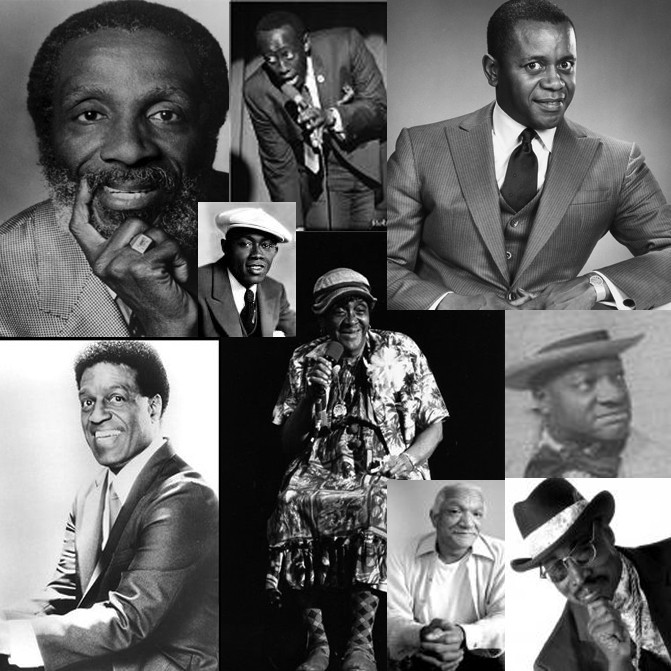
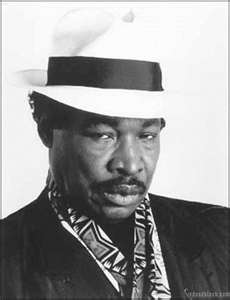
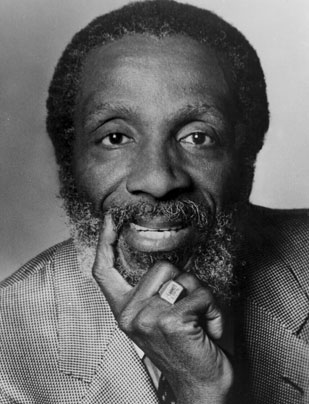
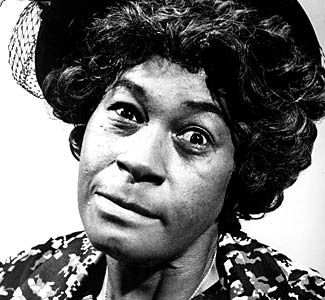
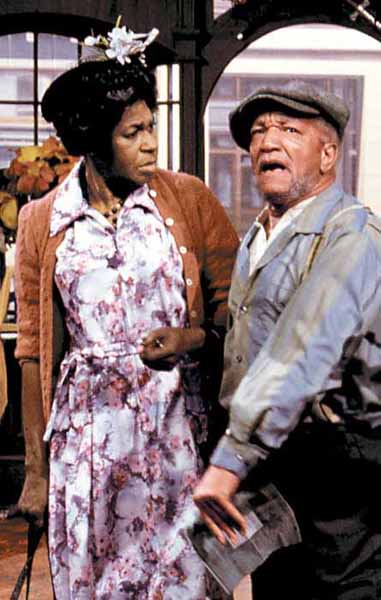
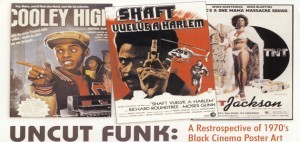

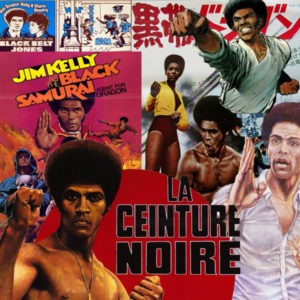

0 Comments